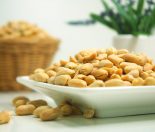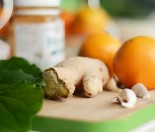Vitamin and mineral supplements are used commonly in New Zealand, but are vitamin and mineral supplements necessary for healthy toddlers, young children, teenagers, and women?
To supplement or not to supplement?
In general, for most healthy people, if you follow the nutritional guidelines developed by the Ministry of Health you should not need a take a multivitamin / mineral supplement.
The nutritional guidelines recommend that you eat from each of the four food groups each day. Your four food groups are
Fruit and vegetables – an important source of water soluble vitamins especially folate, vitamin A (found in yellow and green vegetables) and vitamin C (found in dark green vegetables, most fruits and potatoes). Fruit and vegetables are also an important source of the minerals magnesium and potassium. They will also contribute some iron. The chemicals that give fruit and vegetables their wonderful colour (phytochemicals) are also rich antioxidants which are important for fighting free radicals which damage the cells in our body.
Breads and cereals – an important source of all B vitamins (except vitamin B12), and vitamin E (wheat germ is a rich source so choose wholegrain breads and cereals).
Meat and meat alternatives – an important source of minerals such as iron, zinc, magnesium, copper, potassium, phosphorous and selenium. Also provides B vitamins especially B12, niacin and thiamin.
Dairy products – provides the minerals calcium, phosphorous, zinc and iodine. It is a source of the B vitamins riboflavin and B12, as well as vitamin A and D.
How much should you eat from each of the four food groups?
Below is the recommended serves for each of the food groups – but remember the goal is also to eat a variety of foods within each group so that you get a good range of nutrients.
| Food Group | Number of Serves to have each day | Example of One Serve |
| Bread & Cereal Group | At least 4 serves for 2-5 year oldsAt least 5 serves for school childrenAt least 6 serves for adults.At least 7 serves for breast feeding | 1 medium slice bread or 1 small bread roll or muffin or 2 large or 3 small crackers1/2 cup cooked cereal3/4 cup ready to eat breakfast cereal1/2 cup cooked rice, pasta |
| Fruit & Vegetables | At least 2 vegetable & 2 serves fruit for 2-5 year oldsAt least 3 vegetable & 2 serves fruit for school children and adultsAt least 4 vegetable & 2 serves of fruit if pregnant or breast feeding | A serving is what fits into the palm of your hand. Could be raw or cooked.Only one serving of juice (250ml) or one serve of dried fruit (2 tablespoons) counts towards the total number of serves for the day |
| Meat, fish, eggs, chicken, dried beans & lentils | At least 1 serving every day for 2-5 year olds & school children and adultsAt least 2 servings for pregnant and breastfeeding women | For children a serve is approximately the size of the palm of their hand. The palm of the hand is a good guide for adults as well or the following amounts can be used:2 slices cooked meat (approx 100 g)3/4 cup mince or casserole1 egg or 1 medium fillet of fish or2 drumsticks or 1 chicken leg3/4 cup cooked or canned beans, peas or lentil |
| Dairy products or alternative(eg Soy milk fortified with calcium) | At least 2 – 3 servings each day for 2-5 year olds and school childrenAt least 2 servings for adultsAt least 3 servings for pregnant and breastfeeding women | 250 ml milk1 pottle yoghurt or buttermilk (150 g)40 g (2 slices) hard cheese200 g cottage cheese or ricotta cheese2 scoops of ice cream |
Who may benefit from a supplement?
There are some groups who may benefit from a supplement to achieve their needs:
Pregnancy:
All women who are trying to conceive should supplement with folic acid to decrease the risk of neural tube defects. The recommended amount of folic acid is 800 micro grams per day, although if there is a history of spina bifida in the family 5 grams is recommended.
An iron supplement may be indicated during pregnancy as well, this will be based on blood test results.
Non- milk drinkers
If you cannot drink milk and you are not using calcium enriched soy milk in place of cows milk, a calcium supplement may be needed. Discuss with your doctor, dietitian or pharmacist to decide what is an appropriate amount based on your age.
Vegetarians
If you are a vegan (that is you eat no animal products at all) you will need to ensure you have an adequate source of vitamin B12. You should either choose foods fortified with B12 or take a B12 supplement.
Young female vegetarians may need to take an iron supplement, but iron supplements should only be taken once a blood test has confirmed a deficiency.
Some facts
Eating a variety of foods is the best way to get all the nutrients you need for health. Supplementing some nutrients can interfere with the absorption of other nutrients leading to an imbalance of another nutrient – for instance iron interferes with the absorption of zinc.
Research shows that some nutrients, such as the phytochemicals found in fruit and vegetables, are more effective when eaten as part of a whole food rather than relying on synthetic supplements.
Fat soluble vitamins (vitamins A, D and E) are stored and too much can cause harm. Excessive amounts of Vitamin A can damage your liver and taking a supplement containing vitamin A is not recommended during pregnancy as it can harm the developing baby.
Water soluble vitamins (B and C) cannot be stored and taking these when you don’t require them means they will pass out in your urine and get flushed down the loo!
Taking a vitamin or mineral supplement will not give you energy. You get energy from eating whole foods which provide you with energy in the form of carbohydrates and protein. While vitamins and minerals are crucial in many chemical pathways in your body which help release energy, they cannot act as a form of petrol for your energy reserves.
Keeping energized relies on:
· balancing your food intake
· ensuring you get enough sleep
· having regular exercise.
Useful articles
To know more about what your food contains read this fascinating article on Reading Food Labels
Iron for Children gives accurate information on when and when not to supplement.









lDear Fiona,
I think I have information that you would find of interest in your work as i have been researching selenium for 12 years. This has included some trials. I live at 211 Ngatai Road. ph.5760578 if you care to ring me when you aren’t too busy.
David Walpole